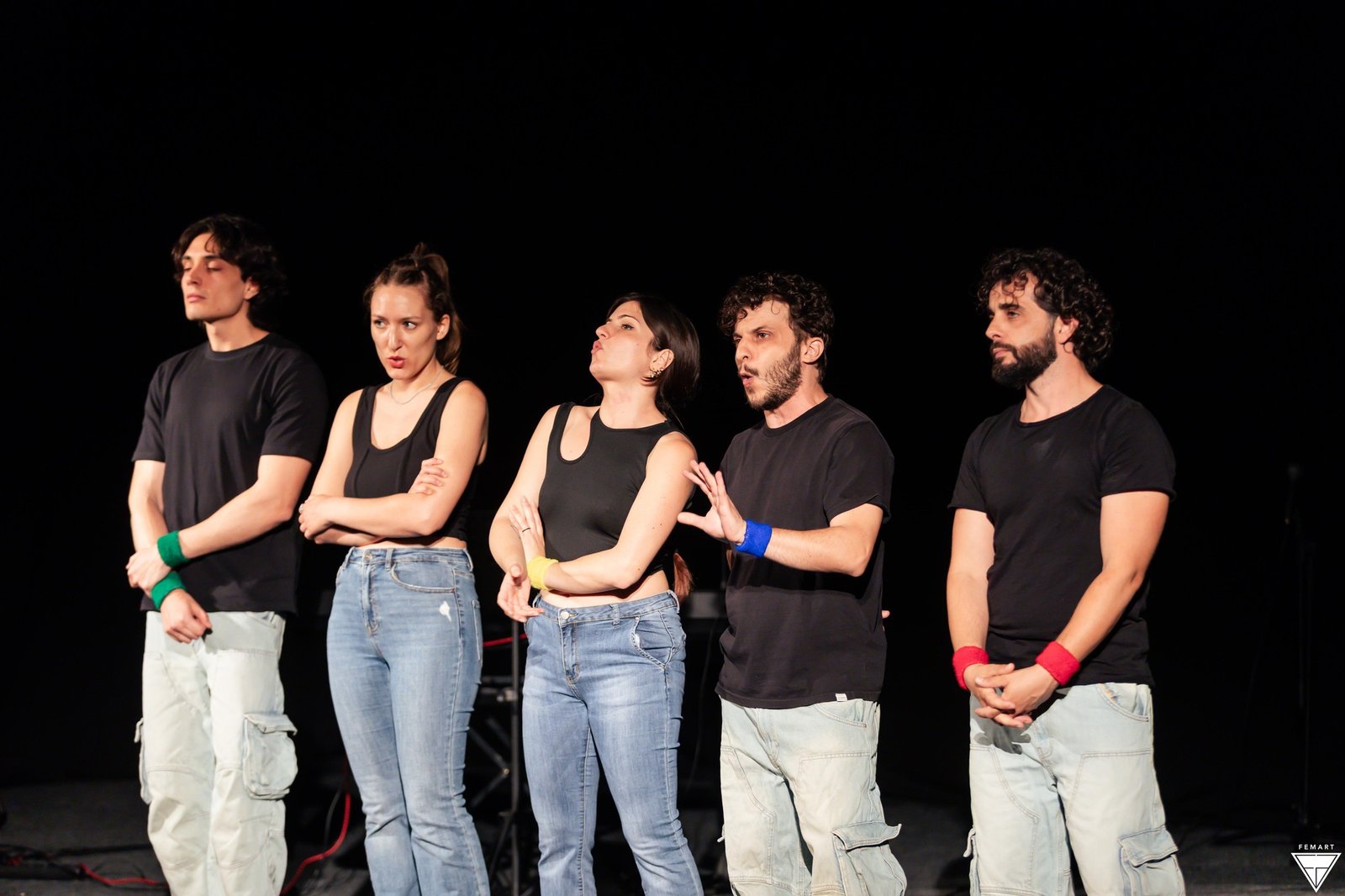By: Shqipe Malushi
From the moment the lights kissed the stage and five luminous beings leapt into view—full of ease, full of dreams—it felt as though the theatre itself had exhaled. No shadows, no sorrow—just the heartbeat of youth dressed in song.
In a festival charged with righteous fire and collective pain, Qualcosa di Grande arrived like rain after drought. Directed by the spirited duo Samaria Cassi and Leonardo Brizzi, and brought to life by a cast of vibrant souls—Lorenzo, Miriana, Ariana, Francesco, Samuele Spagnolo., and Samuele Ingrosso, the performance unfolded not with the weight of tragedy, but with the levity of possibility.
They danced and sang not to escape the chaos of the world, but to meet it—heart first. Through a clever weaving of music, humor, and memory, they told the story of a generation too often dismissed or misunderstood. These were not caricatures of Gen Z, but living, breathing messengers of a turbulent era—playful, anxious, fierce, and tender. They were not afraid to ask hard questions about the world they are inheriting—but they asked them with music in their mouths and hope in their eyes.
Their voices, like threads of silk, bound the past to the present, stitching nostalgia into the now. They sang of the Euro, of 9/11, of the global financial quake that shook their childhoods—but always with an undertone that said: we are still here, still rising, still creating something grand.
The soul of the show pulsed through the music of Lùnapop, especially the beloved anthem “50 Special,” celebrating its 25th anniversary. But these weren’t mere covers—they were confessions set to melody, memories polished into performance. It was a coming-of-age told through harmony, humor, and heartbreak—a love letter to youth, written by youth.
Guided by the gentle wisdom of Professor Franco Ungaro, the cast didn’t just perform—they bloomed. The stage became their garden, and we, the audience, were lucky enough to witness the flowering of new voices, new visions, and a theatre company—Maestrale Teatro—stepping boldly into the world.
They reminded us that joy is not the opposite of struggle. It is its companion. That laughter can be a protest, and song can be a promise. And above all, that the future isn’t something we must fear—it’s something we must dare to imagine.
Thank you, Professor Ungaro, for believing in their light. And thank you, brave ensemble, for reminding us that even in uncertain times, there will always be something beautiful growing in the hearts of the young.
Last night, the stage did not hold a performance. It held a sunrise.

